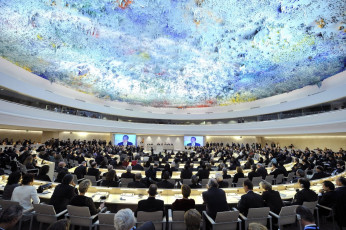This is the name of the profound and beautiful novel by Tzvetan Todorov, one of the sharpest thinkers from contemporary times, who died very recently. His work offers a thesis on the risks faced by current democracies, which is something worth discussing in Colombia, especially during this electoral period.
Todorov’s theory is similar to the thesis from another best-selling literary work that is also worth studying How Democracies Die by Harvard scholars Levitsky and Ziblatt. Both books present the idea that present-day democratic regimes do not become extinct due to usual ways such as being suddenly assassinated by external enemies, for instance as a military coup, which can be observed in the end of Chile’s democracy in 1973, or an attack from a totalitarian State, an example being the effect of the Nazi invasion in 1940 to the Third French Republic. Nowadays democracies end in a different way. Their deaths are slow, making it difficult to discern when they occur and its causes lay in the hands of internal enemies now, rather than the usual external means.
These internal enemies, according to Todorov, can be divided into three categories. First, populism, which recruits popular support from a majority in order to destroy horizontal controls, such as judicial independence, that in itself serves an essential role in perceiving the rights of the state, and hence is necessary to maintain a Democratic state worthy of its name. Second, political messianism, coming from those who feel they have such an important goal to achieve that they disregard any juridical restraint. Third, neoliberalism, that breaks any social solidarities, which are necessary for the cohesion in the political community, and that additionally provokes an increment in economic inequalities. Moreover, as Rousseau said more than two centuries ago, for democracy to subsist it is crucial that “no citizen shall ever be wealthy enough to buy another, and none poor enough to be forced to sell himself.”
This threat to democracy from internal enemies doesn’t have a clear political color, sometimes attacks come from the left-wing, others from the right.
An example of a democracy that was eroded by a left-wing leader in Venezuela. Hugo Chavez, a charismatic leader with great popular support and winner of various elections, considered his popular mandate so wide and his revolutionary task so crucial in his own messianic vision, he proceeded to subject the Judicial System and all State Control Systems to the “Chavista” ideology. This occurred gradually over time, which makes it difficult to pinpoint when the Venezuelan democracy died exactly. However, it is clear that the Venezuelan democracy died indeed.
An example of a democracy that was eroded by a right-wing leader is Viktor Orban’s sequential governments in Hungary, who in itself won under an extremely nationalistic, almost xenophobic, campaign. Orban calls on his popular triumphs and his messianic duty to defend Hungary from the immigrants, attempting to mine the State from Hungarian rights, in order to justify his actions. This includes subjecting the Constitutional Court of the country, which had served as a symbol for independence and the guarantee of basic rights in past eras. If democracy still subsists in Hungary, even though it is gravely threatened, perhaps it is due to the pressure exercised by the European Union, which has limited certain authoritarian decisions made by Orban.




